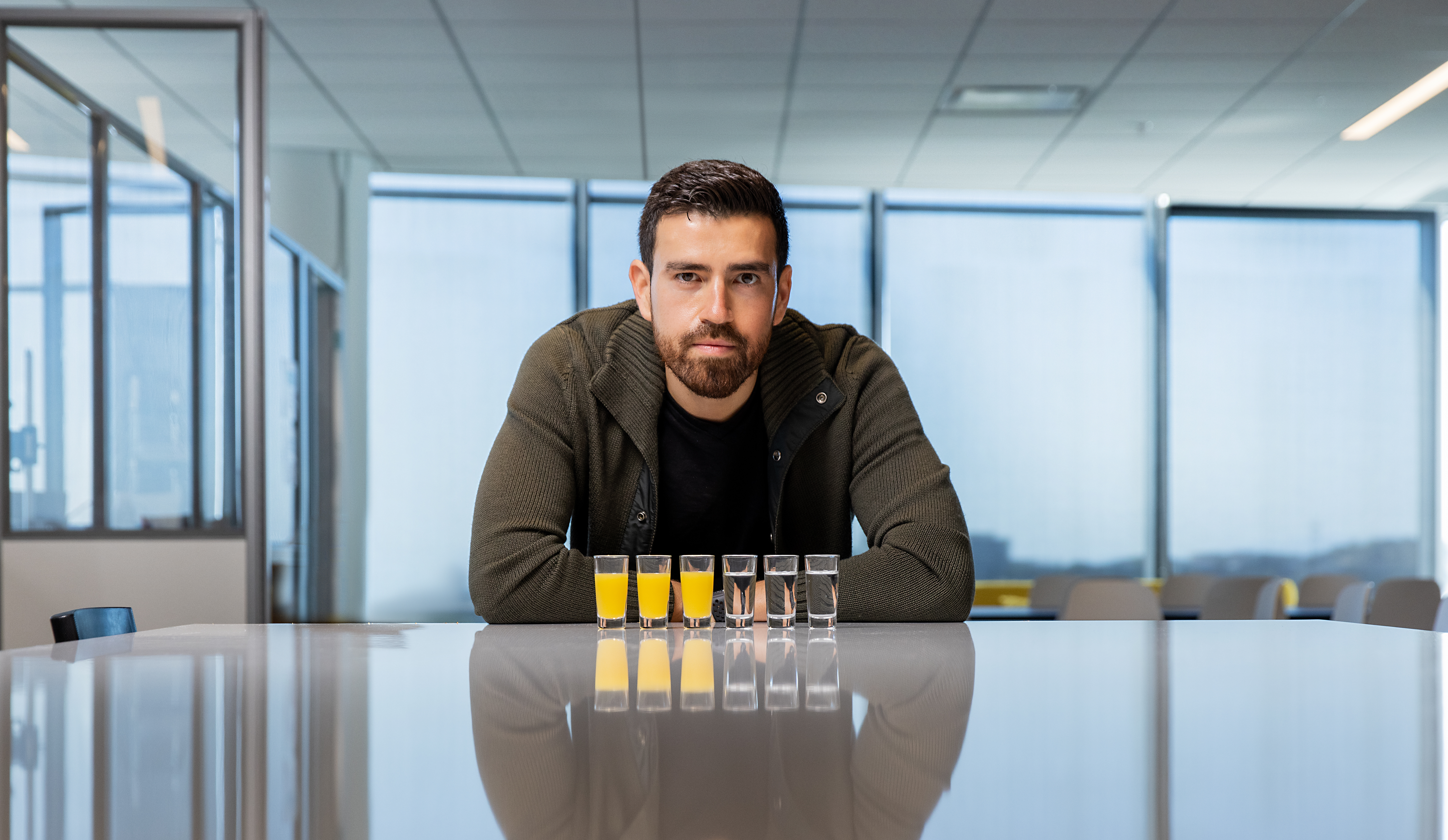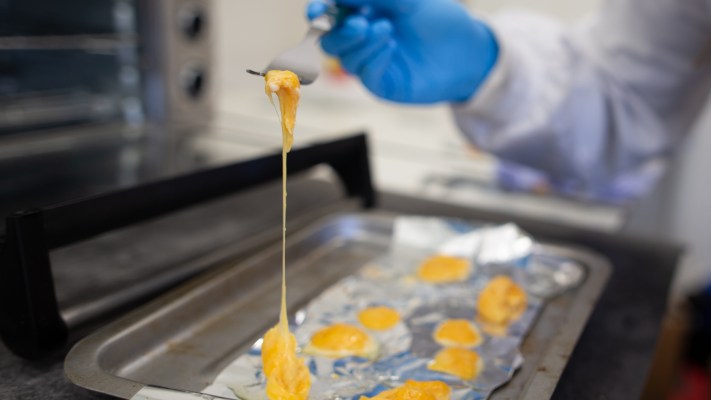Precision fermentation may be a food tech term that doesn’t put a pleasant taste in your mouth, but advances in the technology have investors increasingly ordering it from the menu and giving compliments to the chef.
This technology — brewing food inside huge fermentation chambers — is not new. (If you are a beer connoisseur, you get it — the precision fermentation technique is similar.) It can conjure foods of all kinds, from dairy and honey to meat alternatives.
What has people in the sector so excited is that this technology could create better-quality, more cost-effective proteins than their animal-based counterparts. The ultimate plan? Reduce dependency on animals as one of our main food sources.
Agencies and organizations with knowledge about our food supply chain are saying that “food production must double by 2050” to meet the demand of the world’s population, which is expected to reach nearly 10 billion people. The bummer is they don’t believe there are enough animals to meet that demand, and alternative supplies need to be created.
Independent think tank RethinkX forecasts that “production volumes of the U.S. beef and dairy industries and their suppliers will decline by more than 50% by 2030 and by nearly 90% by 2035.” Some good news is the organization expects alternatives, including those created by precision fermentation, to cost between 50% and 80% less than the animal products they aim to replace.
It doesn’t stop there. RethinkX believes precision fermentation technology will yield many environmental benefits, including using less land, feedstock and water resources.
Who is raising funds
Investors are excited by the prospects as well. The Good Food Institute, which looks at alternative protein innovation, reported that companies in this sector raised $911 million in venture capital dollars in the first quarter of this year, with fermentation companies pulling in $290 million of that.
To date, fermentation-derived meat, seafood, egg and dairy companies have raised over $3 billion since GFI started tracking these investments in 2010. (It’s important to note that there are two kinds of fermentation — precision and biomass — and GFI’s numbers didn’t break them out.)
Looking year over year, GFI noted fermentation companies focused on alternative proteins raised $1.7 billion in investments in 2021, triple the amount infused into companies in 2020.
We’ve been heavily covering investments in this sector, so let’s take a look at how some of these companies are leveraging precision fermentation.
- Joywell, which raised $25 million in Series B funding, is initially focusing on a beverage sweetened with proteins created by a proprietary microbial fermentation process that mimics sweeteners found in certain types of fruits and berries.
- Keeping on the sweet train, MeliBio is making honey without bees. It took in $5.7 million in seed funding to continue developing its technology that identifies the organisms that are good at making honey. The company expects to be able to make honey that works in everything from dressings to baked goods.
- Over in dairy, Better Dairy is using precision fermentation to produce products that are molecularly identical to traditional dairy and is initially tackling aged and hard cheeses, which is a more complex process. The company raised $22 million in Series A funding.
- One of the newer entrants to the space is Yali Bio, a year-old company that raised $3.9 million in seed funding and is using microbes to determine how to make fats into a product system that is highly efficient. It is building up a microbial strain library to test them out. It will then run the strains in fermentors to prove production at a small or intermediate scale.
- Another fairly new company, Zero Acre Farms, is creating alternative oils produced by microorganisms and fermentation. It raised $37 million toward its mission.
- One we personally didn’t cover, but worth mentioning, is Cleveland Kitchen, which this week closed on $19 million in Series A capital for its fermented food product line and also acquired Sonoma Brinery, a company that makes pickles.
What the numbers mean
David Kestenbaum, general partner at ZX Ventures, concurred with GFI’s numbers and noted that some bigger investments into precision fermentation companies happened in the fourth quarter of 2021 that skewed the numbers a bit higher than normal. For example, Remilk took in $120 million in a round, led by Hanaco Ventures, for its cow-free dairy products and is building its own facilities. The EVERY Co., which makes animal-free egg protein, announced a $175 million Series C round in December.
“It seems like we’re at kind of this inflection point where some of the later-stage ones, like the Series C, are starting to put steel in the ground and raising some mega-rounds,” Kestenbaum told TechCrunch. “However, you’ll see the funding being a little bit choppy because the early-stage ones aren’t going to move the needles in terms of dollars. The big ones are going to scale up, and you’ll see different people get to that point this year as others need to raise as well.”
We covered a number of the smaller rounds in that fourth-quarter boost, including Shiru, which is using precision fermentation to produce plant-based ingredients for food companies. The company, founded by Jasmin Hume, announced a $17 million Series A round, led by S2G Ventures. New Culture landed $25 million for its approach to making casein proteins for cheese.
Meanwhile, Helaina, founded by Laura Katz, scored $20 million in Series A and is using the technology to program yeast cells, teaching them to become manufacturing hubs to develop milk for infants with nearly identical proteins to those found in human milk. Helaina is preparing for commercialization, which couldn’t come fast enough given the infant formula shortage.
Maya Schushan Orgad, CTO of PeakBridge, concurs with Kestenbaum’s take, saying via email that precision fermentation startups “are maturing into more advanced stages and raising larger rounds,” similar to the cultivated meat space, where Aleph Farms raised $105 million a year ago and Future Meat Technologies brought in $347 million last December.
She attributes the rise in numbers, in part, to startup growth and progress, as well as the “accelerated pace” of seed investments, the result of all the new players entering the market.
Schushan Orgad explained that there are two factors driving this: First, many startups’ successful fundraising inspired other entrepreneurs to grab a piece of the pie. Second, alternative protein companies matured and proved themselves as a viable industry. First-generation companies worked through some of the major challenges: getting the flavor, mouthfeel and texture right; finding enough plant-based protein sources (and financial resources) to scale up; and establishing a supply chain.
“These open a significant opportunity for other players to develop respective solutions to meet the emerging challenges, contributing to the sector’s evolution and driving current and future growth,” she added. “For example, alternative burgers are currently made using fats, such as coconut or palm oil, which do not have the proper functionality and have significant flaws. This gave rise to a relatively new fermentation subsector of companies focusing on developing alternative fat solutions directed exactly at these specific needs.”

Arturo Elizondo, founder and CEO of The EVERY Co., displays the company’s egg protein product. Image Credits: The EVERY Co.
Where we go from here
Though we are only halfway through the year, a rough search through Crunchbase data shows investment amounts for 2022 are closing in on 2021 levels for companies that described themselves as having something to do with precision fermentation, fermentation or synthetic biology.
Around $1.5 billion in capital infusions were made so far this year, according to the data. However, that is coming from fewer investments. Data showed around 50 so far this year, which is a ways to go to match the approximately 150 investments made in 2021.
When asked about predictions for this year in terms of investment, Schushan Orgad said that the events of the past two years are only “the tip of the iceberg” when it comes to progress, maturity, increased traction and a rise in “enabling technologies,” defined as those meant to drive change.
However, she went on to explain that two factors may slow the future rate of progress. One is the general market conditions in the short term that are impacting the growth of fermentation investments, especially because, as Kestenbaum pointed out, so many of the companies are still in the developmental stage. As a result, it will take years for them to show any significant revenue. The other is achieving price parity with existing methods — at the moment, issues with equipment and production will need to be resolved for companies to adequately scale their products.
“The available equipment is insufficient for the scales required to support broad market penetration, thus, extensive capex investments will be essential to bridge the expected production gap,” Schushan Orgad added.
That’s why we are seeing companies emerge aimed at helping food tech companies achieve that scale, whether it be a cheaper growth factor or better equipment, Kestenbaum said. For example, Planetary, a Geneva, Switzerland-based food tech company, is building an industrial-scale production facility so that its customers leveraging fermentation technology can create and scale their alternative proteins quicker. In April, the company announced $8 million in funding toward that cause.
Meanwhile, there are still a lot of deals and new companies emerging in this space, Kestenbaum added. The source of capital is also diverse, patient and in it for the long term. It’s not just traditional VCs anymore, but family offices and sovereign wealth funds.
Scaling strategy, a question we constantly ask companies in the food tech space, remains up in the air. Kestenbaum considers the massive scale needed to produce all of this food as one of the main challenges that remain. Facilities are being built, but construction of that magnitude means it will take a few years for any significant manufacturing to come online.
Though venture capital is slowing and valuations are course-correcting, he believes investors in precision fermentation are playing the long game and will continue to fund this space because of its size — and the fact that there will be lots of winners. It may not look that way in the next 12 to 18 months, the period he forecasts will be challenging for some companies and may even push some recent entrants out of the market.
“I hope people don’t lose faith in this space,” Kestenbaum added. “From what I have seen, I don’t think they will. The type of capital that is here is long-term oriented and investors are more than just financially motivated. There’s a lot of room here, and the winners may not be the names that we know today. I think it’s going to be the next generation of names that are coming up now.”
